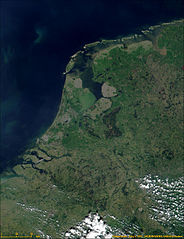 |
| (Rainforest River Toucans/FlickrRedfish1223) |
"Six years ago, President Rafael Correa of Ecuador offered the world what
he considered an enticing deal: donate $3.6 billion to a trust fund
intended to protect nearly 4,000 square miles of the Amazon jungle and
his country would refrain from oil drilling in the rain forest.", The New York Times reports today.
“...The world has failed us,” President Correa said as he withdrew the
offer in a nationally televised news conference on Thursday night. “With
deep sadness but also with absolute responsibility to our people and
history, I have had to take one of the hardest decisions of my
government.”
What happened here? First, potential reserves of 800 million barrels of oil were found in the
Yasuni national park in Ecuador, one of the most bio diverse places in the world. The oil reserves were valued at $7.2 billion, and Ecuador came up with a plan in 2007 to raise half of the expected proceeds, $3.6 billion in 12 years, from other governments, institutions, and rich and famous individuals, and then it would refrain from opening up this unique rainforest to oil drilling.
Some governments paid something. So did Al Gore, Leo DiCaprio and Bo Derek among others. Coca Cola, airlines and banks also contributed. But no leading conservation groups participated, and
"the German development minister, Dirk Niebel, said that the principle of paying for the oil not to be exploited "would be setting a precedent with unforeseeable referrals"." There was also criticism that even if the money would have been raised, Ecuador's government would not have been able to manage those sums and the protection of the park, its native inhabitants and wildlife.
See the following video clip:








